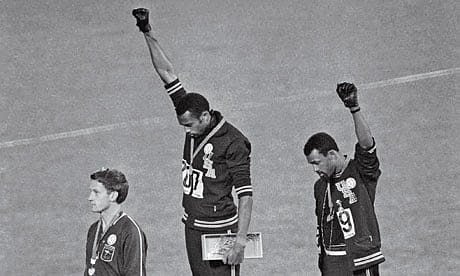
NFL Players with White Agents who take a Knee are Hypocrites
Philadelphia Eagles safety Malcolm Jenkins failed to grasp the meaning behind bowing your head and raising a fist in the air in protest. After 26 weeks of raising his fist duri ng the “Star-Spangled Banner” as his way of supposedly calling attention to police brutality against African Americans, Jenkins stopped doing it this past Sunday.
Jenkins wants the bag of money NFL owners are dangling in front of him. The players coalition the Eagles star founded, along with former NFL wideout Anquan Boldin, signed off on a deal in which the league would donate $89 million over seven years to various charities of their choosing that focus on social justice and racial equality.
Of course, there is quid pro quo attached to the deal. Players protesting during the national anthem have to follow Jenkins’ lead and obey the team owners wishes to stop kneeling, raising their fists or doing anything that draws attention to black oppression before kick-off.
When sprinters Tommie Smith and John Carlos raised their fists during the medal ceremony of their 200 meter race at the 1968 Summer Olympics, they were doing it to empower their fellow brothers and sisters. Smith and Carlos risked it all so that future generations of African Americans could have a fair shot at achieving the American Dream.
A few of Jenkins’ peers were disgusted by his decision to sell out. San Francisco 49ers safety Eric Reid, San Diego Chargers tackle Russell Okung, and Miami Dolphins safety Michael Thomas quit the coalition and continued to protest during the national anthem. They are among the few league stars who get what the slogan, “Say it loud, I’m black and I’m proud,” means.
Unfotunately, Jenkins represents many African American professional athletes who don’t understand what black empowerment means. Black people don’t want any handouts from the NFL. We want league owners and players to seriously tackle systematic racism by providing African Americans a level playing field where we don’t have to worry about getting shot for having a busted tail light or about providing the best possible life for our children.
If Jenkins and black players like him are serious about taking a stand, they should fire their white agents and retain black agents who have broken down their professions’ racial barriers like Adisa Bakari, Charles Parker, Kristin Campbell, Jeff Whitney and the late Eugene Parker. These players are looked at totally different when they are represented by an indepedent black sports agent.
They should be hiring black attorneys and black financial planners who want to help them establish financial stability, instead of the friends and business associates of the white sports agents who want to fleece them dry. There are black financial planners who give advise to white billionaires. Why can’t Jenkins and other black players represented by good ole boys do the same? Because they are scared to take on the NFL plantat ion.
In a recent interview, Jenkins talked about how he owns a Papa Johns franchise, a company founded by John Schnatter, who recently tried to blame the NFL protests for lacksluster pizza sales and who is partners with Jerry Jones, the Dallas Cowboys owner who promised to bench any player who protests. Why isn’t Jenkins looking to put his money in franchises that cater to black clientele like Wingstop and Popeye’s.
The NFL owners don’t have eany respect for black players because they know they are represented by the same small circle of white agents who control every aspect of the players’ financial dealings, robbing them of their professional earnings through horrible advice and shady business dealings. If an NFL player is represented by one of these sharks, you cannot take a knee. Whenever there is an agitator, the whiteys find a house negro like Jenkins and give him some money to shut down the protestors.
Until black NFL players start practcing what they preach, they will not have a place in the black empowerment movement
Twitter UncleLukereal1
instagram UncleLukereal1
Facebook fan page Luther Campbell
